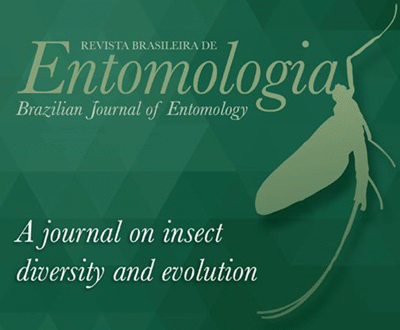ABSTRACT
Rose crops are attacked by many pests, including mealybugs. Although Planoccocus citri is not registered as a main pest of roses in Brazil, it is an increasing problem on roses inside greenhouses. Chrysoperla externa and Cryptolaemus montrouzieri are options against P. citri and other pests on roses, however using two predators in biological control programs may face problems like intraguild predation. This work aimed to assess the consumption of 1st instar nymphs and adult females of P. citri by adults of C. montrouzieri and 3rd instar larvae of C. externa, as well as the interaction between these predators when confined together. The following treatments were performed with ten replications in a completely randomized design: 1 - C. externa + 200 nymphs of P. citri; 2 - C. externa + 10 adults of P. citri; 3 - C. montrouzieri + 500 nymphs of P. citri; 4 - C. montrouzieri + 15 adults of P. citri. Each replication was set on rose leaflets inside a Petri dish (9cm Ø). Intraguild interaction was assessed by releasing both predators inside dishes containing 700 nymphs of P. citri. Before the releases, predators stayed 24 hours without food. We evaluated the prey consumption and intraguild predation for three hours. C. externa consumed significantly less (85,4±2,99) nymphs than did C. montrouzieri (387,0±3,02). There was no difference in adult mealybugs consumed, with an average of 1,85±0,19. No intraguild predation was observed, and an increase of 11,8% in consumption was observed when predators were released together compared to the scenario of no competition.
Keywords:
Green lacewings; Mealybugs; Biological control

 Thumbnail
Thumbnail
 Thumbnail
Thumbnail
 Thumbnail
Thumbnail
 Thumbnail
Thumbnail



